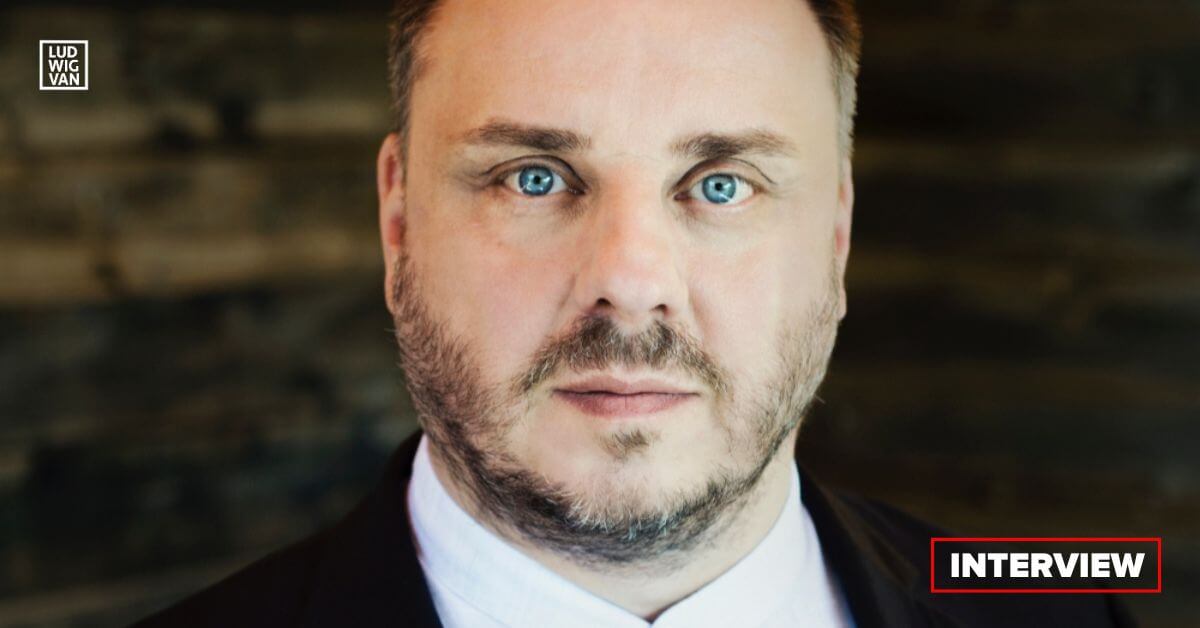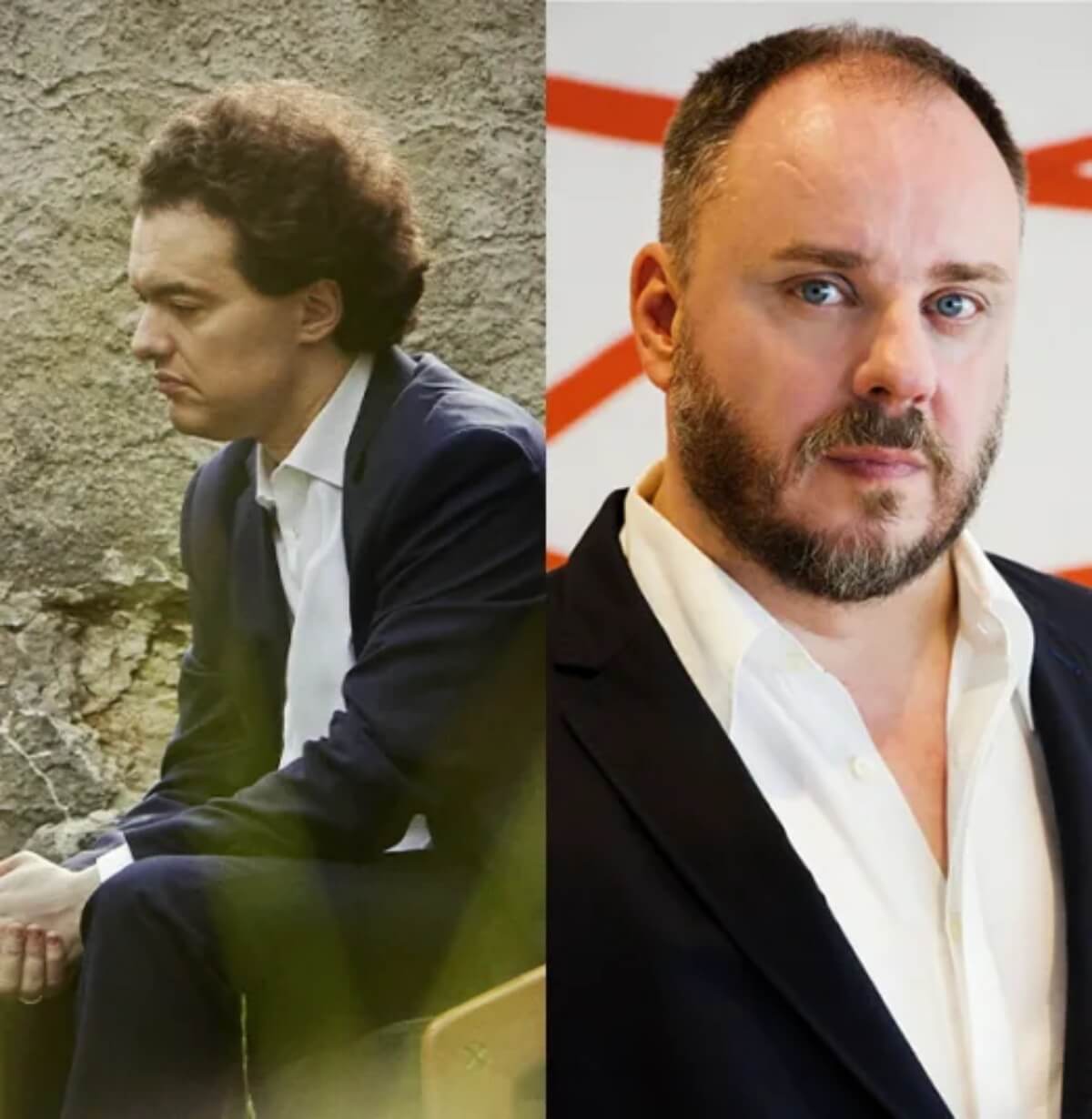
German baritone Matthias Goerne has achieved an enviable and busy career that sees him collaborating with the world’s most prominent orchestras, concert halls, and festivals. The list of artists he’s worked with is a who’s who of contemporary classical superstardom, including Claudio Abbado, Christoph von Dohnányi, Gustavo Dudamel, Valery Gergiev, Bernard Haitink, Mariss Jansons, Paavo Järvi, Yannick Nézet-Séguin, Seiji Ozawa, Kirill Petrenko, Simon Rattle, Esa-Pekka Salonen, and many others.
As an opera singer, one of the keys to his present success has been his ability to choose repertoire judiciously, including the title roles in Béla Bartók’s Duke Bluebeard’s Castle and Alban Berg’s Wozzeck, among others.
His discography on Deutsche Grammophon and Naxos, (with the latter, most recently as Wotan in the Ring Cycle with the Hong Kong Philharmonic and Jaap van Zweden), has garnered several international awards, and five Grammy nominations.
A brief taste of the current tour, from a video promoting the European leg of the tour:
Matthias Goerne: The Interview
Matthias is currently on tour with virtuoso pianist Evgeny Kissin, including a stop at Toronto’s Roy Thomson Hall on April 21.
It’s been Goerne’s practice to program recital tours with a pianist who’s known as a concert performer, rather than the usual choice of a pianist specializing in accompaniment. According to Matthias, working with someone who usually performs as a soloist adds a different dynamic to the performance.
“Most solo pianists are playing this kind of repertoire where there is no text,” he explains. That means, the pianist has to create their own sense of drama out of the music, and that emphasis on interpretation creates the perfect foil for the German Lieder he has made a focal point of his career. He also points out that a solo performer is accustomed to being in front of a larger audience.
“When he is at the same time a great artist […] reading between the lines,” he explains, “my first option is always a solo pianist. He is doing the piano part the way he wants — you’re never scratching on the technical side.” It’s an approach that has clearly worked with both audiences and critics.
“I’m doing this now over 30 years,” he notes.
Classical Music into the Future
North Americans classical music lovers often envy Europeans when it comes to the level of recognition the genre receives at all levels, but it’s not all good news.
“I am always worried a little bit about how it will go on in the future,” Matthias says.
A love of Western classical music and renewed interest by younger listeners doesn’t guarantee the survival of any particular pieces, as he points out. It’s part of the kind of sea change the music industry itself is undergoing at the moment, where younger listeners discover the music through playlists, without the context of music education. “There is a normal transition,” he notes. “You can be educated without knowing this 19th century literature. You can be quite intelligent without knowing Beethoven,” he adds.
“At the same time you have so many young singers and young pianists too who are interested in this kind of repertoire.”
He sympathizes with younger artists who have to worry about filling seats in concert halls. How is it possible to appeal to both established and new listeners? It’s a question new generations have to grapple with.
Part of the problem, as he sees it, is the decline of media coverage when it comes to the arts in general, and classical music in particular. Without the discussion, there is no community of music lovers based on knowledge. It’s pure fandom, largely based on social media, and it makes it even more difficult to put those audience members into their seats.
“I find it disturbing,” he says.

Evgeny Kissin
Matthias says the idea of a concert tour with Evgeny Kissin was first floated a few years ago. Kissin was in Milan when Goerne was performing at La Scala. The two met, and began to make plans.
“After all things that I have done, it’s one of the most important collaborations that I have done.”
The two artists began with a five concert series in Europe that’s been well received.
“It’s going beyond what I could imagine,” he says. Evgeny adds an intense dedication and focus on perfection. “He’s too serious in everything.” Matthias says he was impressed, even shocked at how much the pianist loved the repertoire.
He calls their collaboration “a sort of fusion without listening too much to each other.” It’s been a rewarding experience. “This is so magical. It’s like surfing on the same kind of wave,” he says.
“I adore this kind of atmosphere.”
The repertoire is appropriately substantial. The program includes Schumann and Brahms;
- Schumann: Dichterliebe, Op 48
- Brahms: Four Ballades, Op. 10 (solo piano)
- Brahms: Songs after poems by Heinrich Heine op. 1, 2, 4, Op 71 – 1, Op 96 – 3 & 1
- Brahms: Lieder und Gesänge, Op 32
“There are few pieces or more important than Schumann’s Dichterliebe,” Matthias says. He points out the drama of the piece, a psychological story. “It’s a kind of retrospective on something that happpened a long time ago.”
It’s a piece he’s performed before, but as a younger singer, it took him a long time to find a way to convince himself of the authenticity of his performance.
“It becomes easier and easier because of life experience,” he notes.
When it comes to the Brahms pieces in the program, he points out that, while the composer wrote many songs, all of them beautiful, most don’t achieve the kind of depth and drama to the text that come in the Heine pieces, or Op. 32.
“I think it’s a very exciting kind of program.”
- Find more information about the concert in Toronto on April 21, and tickets, [HERE].
Are you looking to promote an event? Have a news tip? Need to know the best events happening this weekend? Send us a note.
#LUDWIGVAN
Get the daily arts news straight to your inbox.
Sign up for the Ludwig Van Toronto e-Blast! — local classical music and opera news straight to your inbox HERE.
- PREVIEW | SUMMER OPERA LYRIC THEATRE Presents Handel’s Xerxes, Mozart’s Idomeneo & Puccini’a La Boheme July 26 To August 4 - July 26, 2024
- PREVIEW | YENSA Festival V.2 Offers Black Flames Performances & Other Ways To Celebrate Black Women In Dance - July 25, 2024
- PREVIEW | Canadian Talent Conspicuous In The Met: Live In HD 2024-25 Season - July 25, 2024



